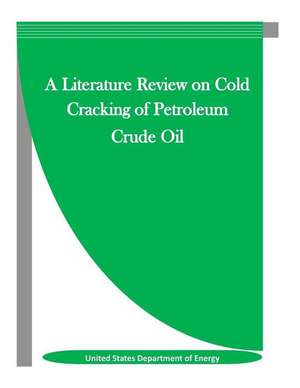A Literature Review on Cold Cracking of Petroleum Crude Oil
Autor United States Department of Energy Editat de Penny Hill Press Incen Limba Engleză Paperback
Preț: 81.09 lei
Nou
Puncte Express: 122
Preț estimativ în valută:
15.52€ • 16.14$ • 13.01£
15.52€ • 16.14$ • 13.01£
Carte disponibilă
Livrare economică 21 februarie-07 martie
Preluare comenzi: 021 569.72.76
Specificații
ISBN-13: 9781523389322
ISBN-10: 152338932X
Pagini: 30
Dimensiuni: 216 x 279 x 2 mm
Greutate: 0.1 kg
Editura: CreateSpace Independent Publishing Platform
ISBN-10: 152338932X
Pagini: 30
Dimensiuni: 216 x 279 x 2 mm
Greutate: 0.1 kg
Editura: CreateSpace Independent Publishing Platform
